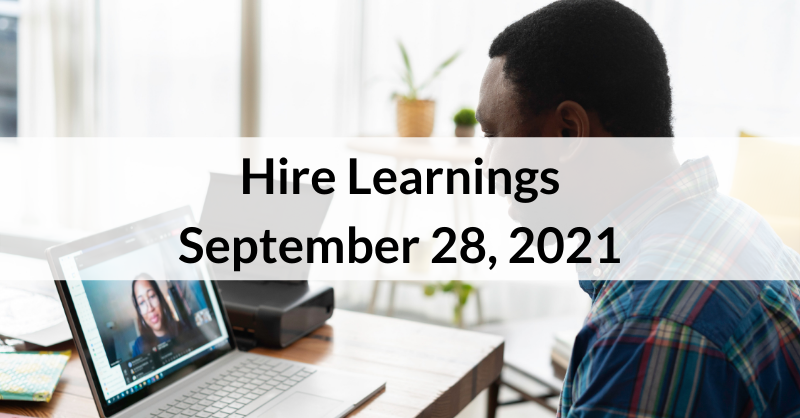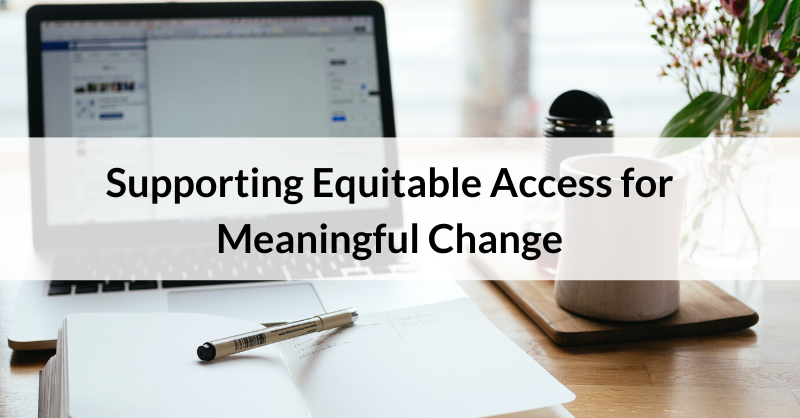
How Will You Close the Equity Gap?
Last week, I attended a webinar around “Closing the Equity Gap,” which offered ways higher education could support first generation, low-income and college students of color in building their professional network.
Though well-intentioned, the conversation really hit a nerve with me: Are we really telling college students that the reason our workplaces lack diversity is because we simply haven’t been introduced to them yet?
As professionals, we know that networking, among other skills you learn in college, can help you to find opportunities, but as employers, what are we doing to create strategic and systematic change? While we all want a mythical one-size fits-all solution for creating diverse, equitable, and inclusive places of work, we also know that one-size simply doesn’t fit all.
This week, I want to challenge you to find one small way to make a big impact: yes, Micro-Internships are one way to help someone gain professional experience, but you could also reach out to your alma mater and offer to spend an hour chatting with current students about your career journey, or connect with your local community organization to volunteer for resume reviews.
We’re accountable today for the workplace of tomorrow. How will you close the equity gap?
Michele Aymold, Vice President
Articles of the Week
Internships ‘somewhat in flux’ as employers make reopening decisions - Higher Ed Dive
3 Reasons Why Your Business Should Embrace Virtual Internships - Harvard Business Review
How To Improve Value of Higher Ed? Increase Career Support - Strada
Why Your Early-Career Recruiting Program Isn’t Equitable And How You Can Fix It - Parker Dewey
Internships ‘somewhat in flux’ as employers make reopening decisions - Higher Ed Dive
“The connections internships enable can be crucial for early-career job seekers, a group that watched their career prospects suddenly dry up thanks to the COVID-19 pandemic.”
As companies begin to rebound from 2020, there’s the question of what internship programs will look like moving forward. And after a year of cancellations and delays, employers now have an opportunity to envision more equitable, accessible, fairly-paid programs.
Related reading: 2021: A Look Forward
3 Reasons Why Your Business Should Embrace Virtual Internships - Harvard Business Review
“Cutting internships means cutting off your own training and talent pipeline. That includes your goals for diversity, equity, and inclusion. vShips can help you keep the pipeline open—and maybe even expand it.”
vShips, or virtual internships, have become a critical piece of the internship practice over the past year. And while it may not be possible for all internships to move online, vShips are becoming increasingly important in keeping “pathway-expanding opportunities” open and propelling future economic growth. This article offers up three observations around virtual internships coming out of 2020—all boiling down to the benefits of the vShip.
Related reading: Micro-Internships and the Benefits of Remote Work for Students
How To Improve Value of Higher Ed? Increase Career Support - Strada
“Just half of college alumni feel it was worth it to take out loans to attend college, with even lower levels of satisfaction from Black and Latino alumni about their loans. But borrowers who feel their college gave them resources and support to get a good job were eight times more likely to feel that their student loans were worth it.”
Amidst rising student debt levels, is a college degree even worth it in today’s professional landscape? This year’s Strada-Gallup Education Consumer survey reveals that career support in college is key to students seeing a return on loans—so how can universities do a better job of building the bridge between higher education and careers? At the top of the list of potential solutions: experiential learning opportunities for all students!
Related reading: The Future of Campus Recruiting
Why Your Early-Career Recruiting Program Isn’t Equitable And How You Can Fix It - Parker Dewey
“From an employer perspective, a more diverse talent pool sounds positive, right? But looking further at the data shows that for every 100 low-income and first-generation students who enroll in college, only 26 will have completed a four-year degree, six years later.”
Today’s college students don’t fit a singular profile. How can employers adapt their recruiting and DEI strategies to provide access to students from all backgrounds? Written by our own VP Michele Aymold, this blog post explores relevant data points about who today’s college student actually is, common campus recruiting practices, and a strategy for creating an equitable, accessible early-career recruiting practice.
Related reading: Overcoming Challenges in Early-Career Recruiting
For more stories and insights on HR, recruiting, and diversity, click here to subscribe to our weekly newsletter Hire Learnings.




